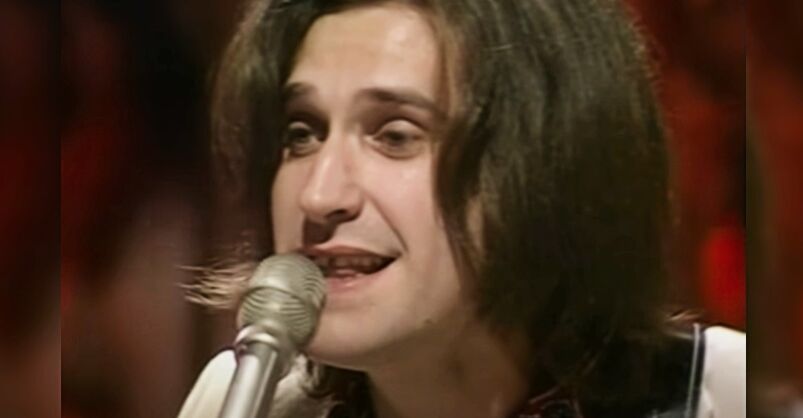
Two years before Lou Reed’s “Walk On The Wild Side”, a British band introduced the world to a gender-fluid heroine.
Brothers Ray and Dave Davies formed The Kinks in London in 1962. They first made a name for themselves with their breakthrough single, “You Really Got Me”, in 1964. It went to number one in their home country and top ten in the US. Further hits, such as “All Day and All of the Night” and “Sunny Afternoon” followed.
However, by the end of the 1960s, their streak of hit singles looked like it might be over. Although their 1969 album, The Kinks Are the Village Green Preservation Society, marked a shift in direction and was welcomed by critics, it failed to offer up a big hit single.
Your dose of fabulosi-TEA
Subscribe to our newsletter for your front-row seat to all things entertainment with a sprinkle of everything else queer.
The band knew they had to keep evolving. What none of their fans were likely expecting was “Lola”. The track was the opening salvo from their next album, Lola Versus Powerman and the Moneygoround, Part One.
“I met her in a club down in old Soho”
“Lola” is about a man meeting a mysterious woman in a club in one of London’s more salubrious neighborhoods.
“I met her in a club down in old Soho, where you drink champagne and it tastes just like Coca-Cola,” sings Ray Davies. “She walked up to me and she asked me to dance, I asked her her name, and in a dark brown voice she said Lola, La-la-la-la Lola.”
For its single release, Davies changed the “Coca-Cola” reference to “cherry cola” to ensure the BBC played it. The British broadcaster had strict rules about commercial product placement in songs.
The narrator notes Lola’s strength (“Well, I’m not the world’s most physical guy but when she squeezed me tight she nearly broke my spine, oh my Lola”) and the deepness of her voice.
He finds himself tempted by her unusual charms.
“Well, we drank champagne and danced all night, under electric candlelight. She picked me up and sat me on her knee, and said ‘Dear boy, won’t you come home with me?’”
“Well, I’m not the world’s most passionate guy, but when I looked in her eyes, well I almost fell for my Lola.”
“Boys will be girls”
However, the moment of temptation passes.
“I pushed her away, I walked to the door, I fell to the floor, I got down on my knees, then I looked at her and she at me. Well, that’s the way that I want it to stay, and I always want it to be that way for my Lola.”
He continues, “Girls will be boys and boys will be girls. It’s a mixed up, muddled up, shook up world, except for Lola, La-la-la-la Lola.”
He concludes with what some may judge as a problematic line today.
“Well, I’m not the world’s most masculine man, but I know what I am and I’m glad I’m a man, And so is Lola, La-la-la-la Lola.”
That said, it’s not clear whether Lola is a man in drag, a trans woman, or someone on the gender-fluid spectrum. Regardless of her identity, Davies is not singing with anger or disgust. Rather, the narrator is confused about his feelings. He is also intrigued and clearly attracted to this person.
“It really doesn’t matter what sex Lola is”
In an era when the issue of gender identity divides so many, it would take a courageous, straight rock singer to sing today about being attracted to a trans woman. Back in 1970, it was culturally seismic.
The song prompted some controversy upon its release but not enough to result in a ban. Addressing backlash toward the lyrics, Ray Davies told Record Mirror at the time, “It really doesn’t matter what sex Lola is, I think she’s all right.”
Davies later said that he was inspired to write the song after the Kinks’ manager spent a night in Paris dancing with someone of indeterminate gender.
“In his apartment, Robert had been dancing with this Black woman, and he said, ‘I’m really onto a thing here.’ And it was okay until we left at six in the morning and then I said, ‘Have you seen the stubble?’ He said ‘Yeah’, but he was too pissed [intoxicated] to care, I think.”
London’s underground queer scene
The band’s drummer, Mick Avory, offered an alternative explanation. He said being called “The Kinks” meant the group attracted some unusual hangers-on. One was a fashion publicist called Michael McGrath who would invite Avory to bars in Earls Court popular with drag queens and trans women.
“They were like secret clubs,” Avory later recalled. “And that’s where Ray [Davies] got the idea for ‘Lola’. When he was invited too, he wrote it while I was getting drunk.”
It’s also worth noting that Dave Davies, the group’s other main songwriter, enjoyed sexual encounters with both men and women. This included a brief fling with blues singer Long John Baldry in the late 60s. Dave might have also visited underground gay haunts of the time.
Commercial success
Much of the world fell for the charms of “Lola”. It went top ten in the US, UK, Canada, Germany and Australia. In rock magazine Creem, critic Dave Marsh called it, “the first significantly blatant gay-rock ballad.”
It has remained an enduring classic. In 2021, Rolling Stone ranked it at number 386 in its list of “The 500 Greatest Songs of All Time”.
“Lola” also reinvigorated the band’s career. They were on the verge of signing a new record contract and negotiated a significantly bigger deal. Dave Davies later said if the single had failed, The Kinks would probably have drifted apart. As it was, friction between him and brother Ray would ultimately lead to the band splitting for good in the 1990s.
The song has been covered several times. “Weird Al” Yankovic penned a parody version of the song called “Yoda” for his 1985 album, Don’t Be Stupid.
Duran Duran guitarist Andy Taylor released a version as a solo single in 1990. And the British band Madness recorded a ska version for their 2005 album, The Dangermen Sessions, Volume One.
Enduring influence
British writer Darryl W. Bullock is the award-winning author of ‘David Bowie Made Me Gay’ and ‘Queer Blues’. He says that trans characters had been referenced in 60s rock songs. He points to, “Sweet Loretta Martin thought she was a woman but she was another man,” in The Beatles’ “Get Back”.
“‘Lola’ is important though because it is blatant,” Bullock tells Queerty. “For the first time, the trans character is the star of the show, not someone to be laughed at or pitied. She is a strong woman who knows what she wants and where to get it.
“Recorded and released in early 1970, songs like ‘Lola’ helped open up discussion about trans people in the press and also helped to empower Britain’s nascent gay rights movement, and it clearly had an effect on the music that followed,” he continues. “Would David Bowie—a huge Kinks fan—have had the bottle to write “Queen Bitch”, or to help Lou Reed bring his own trans anthem, ‘Walk on the Wild Side’ to life without it?”
Related:
Was this The Beatles’ track an ode to gay love inspired by John Lennon’s GBF?
Many queer listeners say this much-loved Beatles album track resonates with them.
Roberta Flack’s ‘Ballad’ for the Stonewall generation
In her 1969 release, “Ballad of the Sad Young Men,” Flack sings directly to gay men.

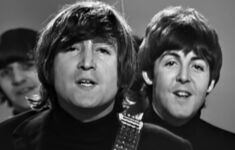
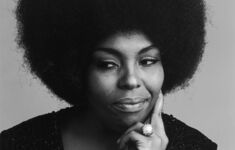
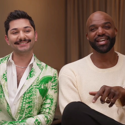

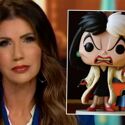
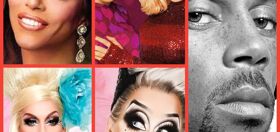

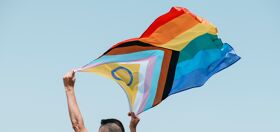

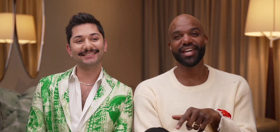

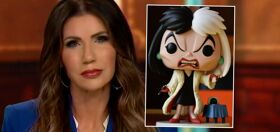
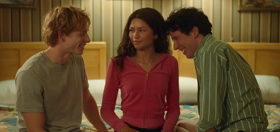

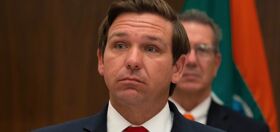


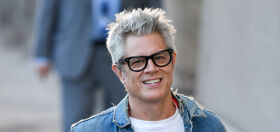
dbmcvey
Great song!
Mister P
Yes I agree. Great song!
ZzBomb
Love that song!
Love the Kinks too. So many great musicians came out of my parent’s generation. Still listening to the stuff of the 60’s and 70’s b/c they still slap.
abfab
Yes, a killer song. It had muscle, no pun intented. Another hit from the UK around the same time, which eluded censorship and went over most everyone’s head (still to this day) is ”Mellow Yellow” by our most Fey Troubadour of all time, DONOVAN. Take a spin!
Electrical banana
Is gonna be a sudden craze
Electrical banana
Is bound to be the very next phase
djtx
Dude Looks Like A Lady owes its existence to Lola, which is a much more elegant song.
abfab
For a much more elgant lady. Mrs Doubtfire.
abfab
Get well, Ray Davies. He’s been in failing health for some time now.
OhHellNo
The first time I heard this on the radio I thought I’d died and gone to rock heaven. This subversive piece of wax still shines like the sun.
LumpyPillows
For once a proper used of the word queer.